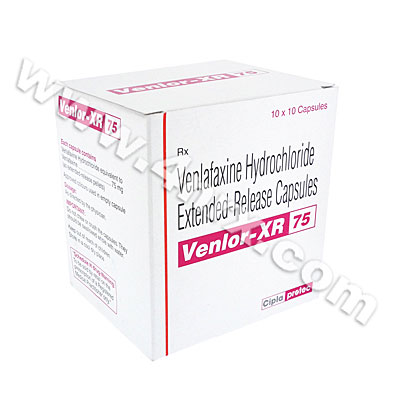 |
Home  Antidepressants Antidepressants  Venlor XR (Venlafaxine) Venlor XR (Venlafaxine) |
|
|||||||||
|
Venlor XR (Venlafaxine)
What is Venlor XR (Venlafaxine) used for? Venlor XR (Venlafaxine) is used to treat the symptoms of depression, panic disorder and anxiety. This drug belongs to a class of medications known as serotonin-norepinephrine reuptake inhibitors (SNRIs), which work by restoring the equilibrium in the brain of natural substances such as norepinephrine and serotonin. It may also be used to treat other mental disorders. How should I use Venlor XR (Venlafaxine)? Venlor XR (Venlafaxine) comes in the form of capsules, which can be taken with food. Adults are sometimes directed by their physician to take this drug 2 to 3 times per day. However, the exact dosage can vary depending on the condition being treated. Patients should always consult their physician before taking this medication so that the correct dosage can be prescribed. Patients should not abruptly discontinue taking this medication, as doing so may cause withdrawal symptoms. What are the side effects of Venlor XR (Venlafaxine)? Some side effects may occur when taking Venlor XR (Venlafaxine) such as:
You should consult your physician immediately if any of these side effects persist or worsen, or if you notice tremors, muscular cramps, a decrease in sexual ability, breathlessness, persistent nausea, severe diarrhea, muscular twitches, fever or hallucinations. Please Note Strictly follow all instructions provided to you by your physician or pharmacist while using Venlor XR (Venlafaxine). Optimum and safe dosage can differ based on the patient and the condition being treated. As this medication may be unsafe for certain patients, it is essential you always inform your physician if you are pregnant or breastfeeding, as well as if you have any allergies, other illnesses, or ongoing health conditions, especially high blood pressure, heart problems or high cholesterol, and if you are taking any other form of medication, supplements, or herbal products. You should immediately consult your physician if you have any suicidal thoughts. Immediately seek emergency medical care if you have any allergic or hypersensitive reaction. Common signs of a reaction include hives, swelling, skin rashes, chest pains, as well as trouble breathing or swallowing. 


|
|||||||||||||||||